SLUSBU9H March 2014 – June 2021 BQ2970 , BQ2971 , BQ2972 , BQ2973
PRODUCTION DATA
- 1 Features
- 2 Applications
- 3 Description
- 4 Revision History
- 5 Device Comparison Table
- 6 Pin Configuration and Functions
- 7 Specifications
- 8 Parameter Measurement Information
- 9 Detailed Description
- 10Application and Implementation
- 11Power Supply Recommendations
- 12Layout
- 13Device and Documentation Support
- 14Mechanical, Packaging, and Orderable Information
Package Options
Mechanical Data (Package|Pins)
- DSE|6
Thermal pad, mechanical data (Package|Pins)
Orderable Information
10.2.3 Application Performance Plots
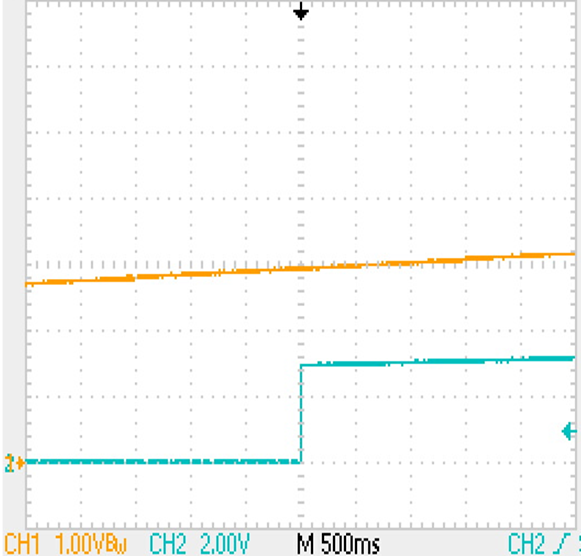
| Orange Line (Channel 1) = Power Up Ramp on BAT Pin | ||
| Turquoise Line (Channel 2) = DOUT Gate Drive Output | ||
| DOUT goes from low to high when UVP Recovery = UVP Set Threshold +100 mV |
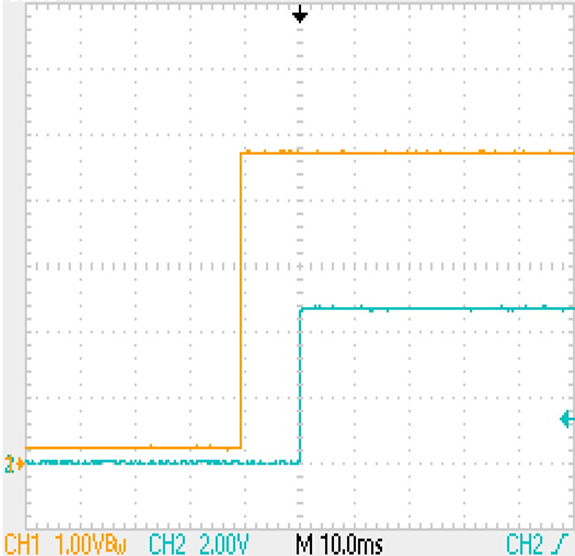
| Orange Line (Channel 1) = Power Up Ramp on BAT pin | ||
| Turquoise Line (Channel 2) = DOUT Gate Drive Output | ||
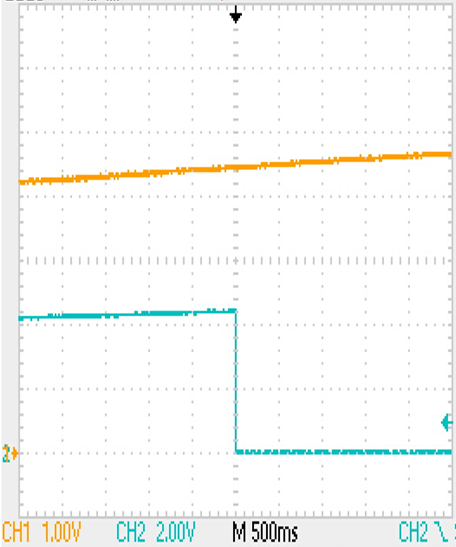
| Orange Line (Channel 1) = Power Up Ramp on BAT Pin | ||
| Turquoise Line (Channel 2) = COUT Gate Drive Output | ||
| COUT goes from high to low when OVP threshold = OVP set Threshold + set delay time |
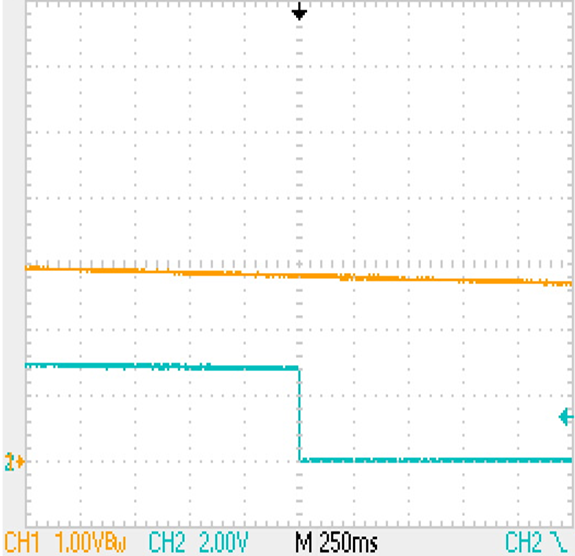
| Orange Line (Channel 1) = Power Down Ramp on BAT Pin | ||
| Turquoise Line (Channel 2) = DOUT Date Drive Output | ||
| DOUT goes from high to low when UVP threshold = UVP set Threshold + set delay time |
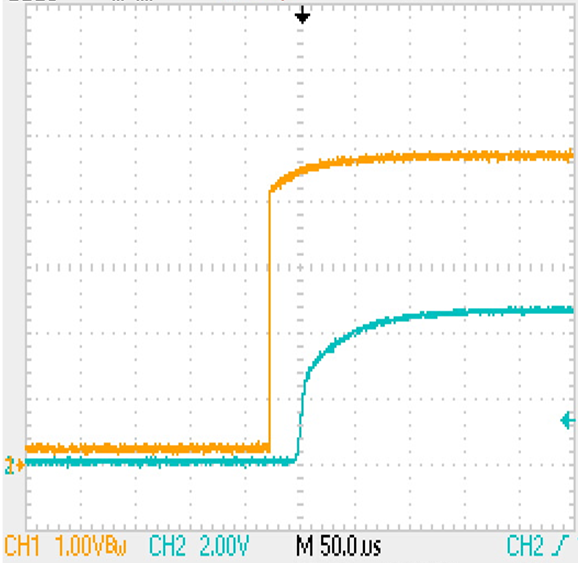
| Orange Line (Channel 1) = Power Up Ramp on BAT Pin | ||
| Turquoise Line (Channel 2) = COUT Gate Drive Output | ||
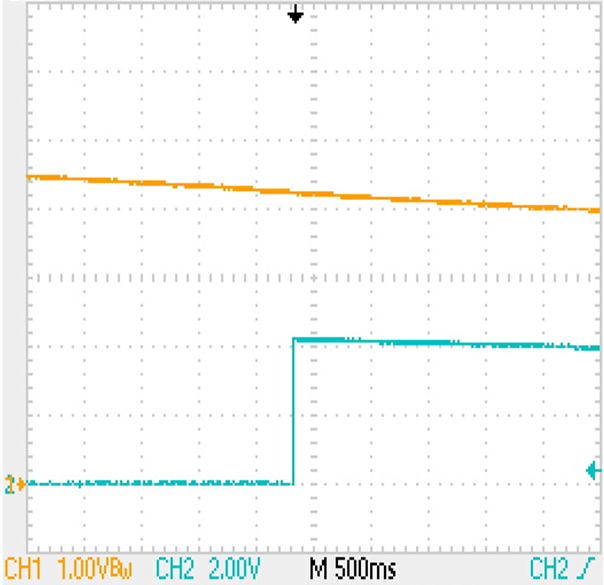
| Orange Line (Channel 1) = Decrease Voltage on BAT Pin | ||
| Turquoise Line (Channel 2) = COUT Gate Drive Output | ||
| COUT goes from low to high when OVP Recovery = OVP Set Threshold –100 mV |